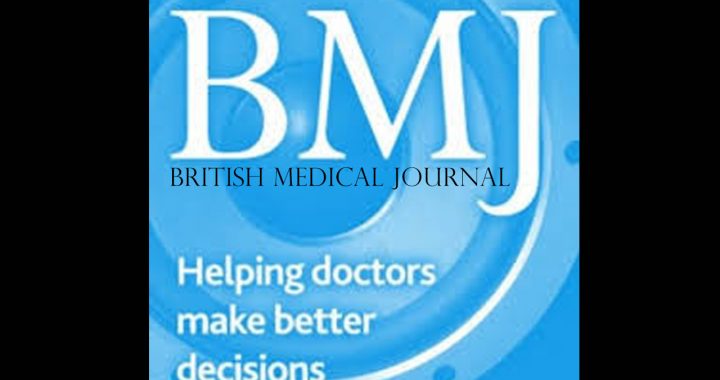almost two decades ago with her resignation from her 17 year long position as the editor of the New England Journal of Medicine. She boldly stated that she could no longer serve as an advertising agency for Pharma by publishing as “medical research” what were basically infomercials written up, minus any real research, & then signed by doctors paid to do so as if it was their own valid research. She then wrote her book, “The Truth About Drug Companies, How They Deceive Us & What To Do About It”
On our website for some time now has been the Atlantic Monthly interview with Dr. John Ioannidis (Known as the world’s leading expert on medical research), Lies, Damn Lies & Medical Science, all about the serious issue of the
I do want you to note the particular pharmaceutical company mentioned here who has just lost a court battle on the safety of pelvic mesh, Johnson & Johnson because in my next post I intend to feature perhaps their greatest blunder of all that they have just introduced. This is the same company who brought us baby powder that causes cancer and the antipsychotic, Risperdal, which gives your sons such large breasts that they need Massectomies , Johnson & Johnson because in my next post I intend to feature perhaps there greatest medical blunder of all that they have just introduced. this is the same company who brought us opiods that are killing so many, baby powder that causes cancer and Risperdal that gives your son’s, not your daughters, such large breasts that they need massectomies!
“When we want to decide on a medicine or a surgery, a lot of the evidence we used to inform that decision is biased,” he says.
‘Cannot be trusted … causing harm’: Top medical journal takes on big pharma
By Liam Mannix
December 4, 2019 — 12.01am
A medical journal is launching a global campaign to separate medicine from big pharma, linking industry influence to the pelvic mesh scandal that injured hundreds of women.
The BMJ says doctors are being unduly influenced by industry-sponsored education events and industry-funded trials for major drugs.
Those trials cannot be trusted, the journal’s editor and a team of global healthcare leaders write in a scathing editorial published on Wednesday.
The “endemic financial entanglement with industry is distorting the production and use of healthcare evidence, causing harm to individuals and waste for health systems”, they write.
They are calling for governments to start funding independent trials of new drugs and medical devices, rather than relying on industry-funded studies. Sponsored research is more likely to find a favourable result compared to independent research, studies show.
But doctors have hit back, questioning who will pay for education and medical research if the pharmaceutical industry is excluded.
Assistant Professor Ray Moynihan, a Bond University researcher studying the link between money and medicine, and is one of the leaders of The BMJ’s campaign.
Dr Anna Stavdal, president-elect of the World Organisation of Family Doctors, Assistant Professor Ray Moynihan and Dr Fiona Godlee, editor in chief of The BMJ, in Sydney before the campaign launch.
“When we want to decide on a medicine or a surgery, a lot of the evidence we used to inform that decision is biased,” he says.
“It cannot be trusted. Because so much of that has been produced and funded by the manufacturers of those healthcare products.”
Dr Moynihan points to the example of medical giant Johnson & Johnson, which sold pelvic mesh to thousands of Australian women. It knew the mesh could cause serious harm, but never properly warned women of the risks.
In the US, a court found the same company deliberately played down the dangers and oversold the benefits of opioids, stoking the addiction crisis that claims the lives of 130 Americans a day. The company plans to appeal in both cases.
The BMJ also wants policies in place to stop doctors receiving professional development points for attending industry-sponsored education events.
These events, critics claim, are thinly disguised sales seminars.
Between 2011 and 2015, pharma companies spent more than $286 million on events for Australian doctors, nurses, pharmacists and specialists, according to University of Sydney research.
Many received free food and beverages, and some got free flights and accommodation for an overseas conference.
Studies show doctors who attend industry-sponsored events are more likely to prescribe the company’s drugs.
But the Australian Medical Association questions how medical education and research would be funded without the involvement of the pharmaceutical industry.
“Who is going to fund all this? Is the government going to fund it?” says Dr Chris Moy, chair of the association’s ethics and medico-legal committee.
“Money makes the world go round, in simple terms. Research will not happen unless there is funding.
“Medicine is always going to need pharma companies. We cannot be too brutal on them.”
The Royal Australasian College of Surgeons says it requires its members not to accept money or gifts in exchange for using certain devices or surgeries, and they must declare any conflicts of interest – for example if they are on a company’s payroll – to their patients.
Medicines Australia, which represents major pharmaceutical companies, did not return a request for comment by deadline.
The Medical Technology Association of Australia says its members are bound by a “code of practice which aims to ensure that healthcare providers are not influenced in their decision-making through financial or other inducements to choose one device over another”.
[Yes sir! We believe you because we were all born yesterday! You sure don’t think any of us can think on our own, do you?!!!]
PLEASE BE SURE TO READ THIS FULL ARTICLE & SHARE THIS GREAT INFORMATION WITH EVERYONE YOU KNOW!!





One thought on “BEST CHRISTMAS BLESSING SINCE THE FIRST CHRISTMAS?!! BMJ Declares. Big Pharma “Is Causing Harm & Cannot Be Trusted”…Top Medical Journal Wants Pharma Out of Medical Treatment!”
Comments are closed.